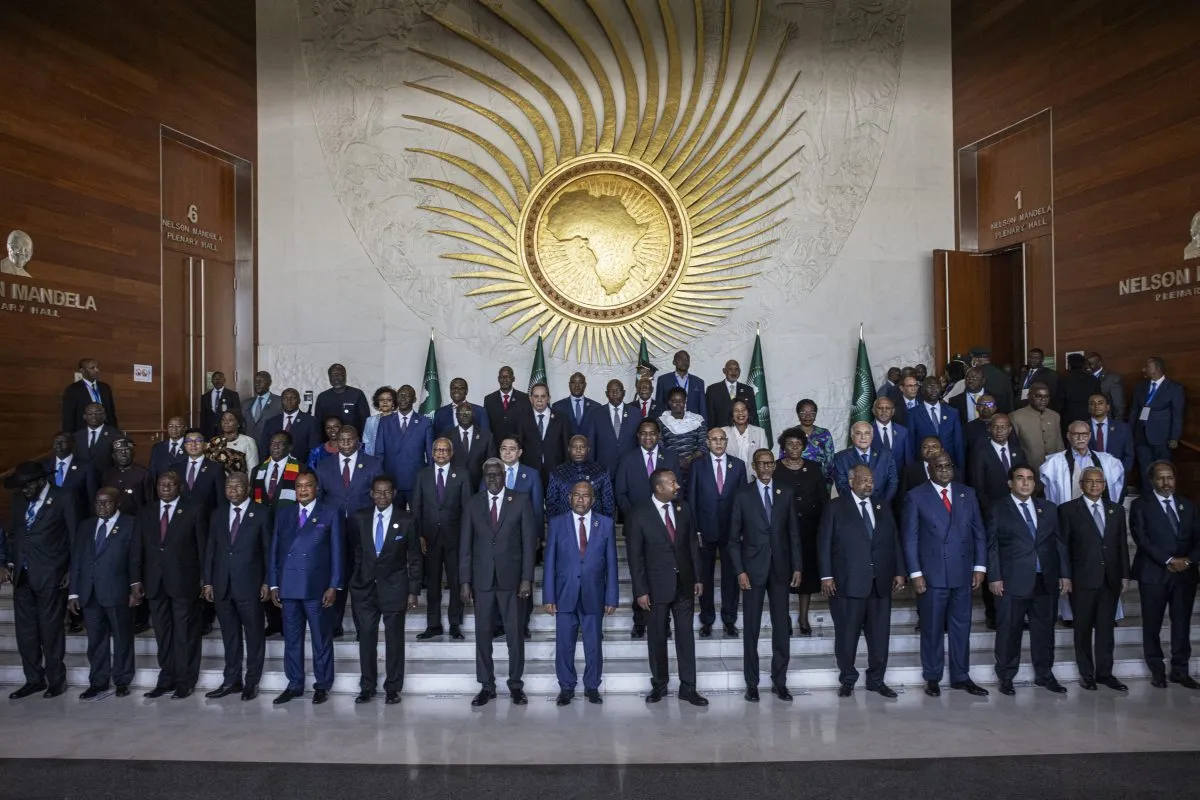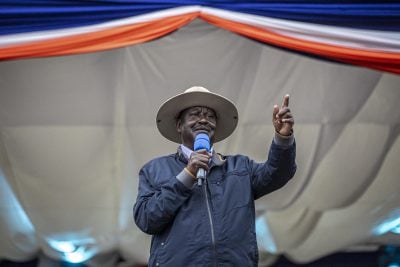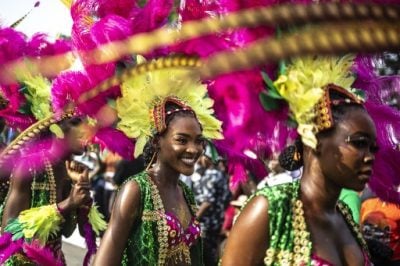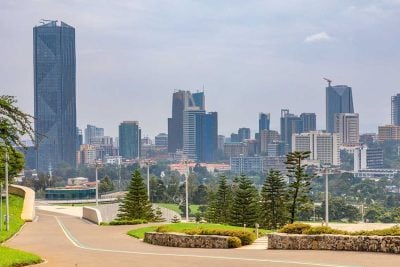Spy lore has it that when the US finally managed to remove the listening devices in the US embassy in Moscow in the early 1990s, the building nearly collapsed. Could the China-funded, China-built African Union (AU) headquarters in Addis Ababa suffer a similar fate? For the AU’s harshest critics, the pressing question isn’t who might be spying on the Union, but why anyone would bother.
When allegations of Chinese intelligence gathering surfaced in 2018, President Paul Kagame of Rwanda, then chairman of the AU, responded wryly: “I don’t think there is anything done here that we would not like people to know.” That may be true, but the public perception of the AU’s value could lead to a different conclusion. Would Africans really be eager to learn that, aside from the quadrennial elections for the African Union Commission, which are expected next February, as many as half of the continent’s heads of state and government often skip the annual AU summit? Few, however, miss the China-Africa Summit or the Tokyo International Conference for African Development (TICAD).
Consider, too, the months-long delays in preparing the African Union’s first participation as a full member of the G20 Summit in Brazil this November. After eight months of debate, the AU Commission chairperson, Moussa Faki Mahamat, finally appointed Albert Muchanga of Zambia as the Union’s “sherpa” – the representative who prepares participation in an international summit. President Mohamed Ould Ghazouani of Mauritania, who is chair of the African Union, nominated his economic adviser Sid’Ahmed Bouh as the sous-sherpa.
The bureaucratic morass of the AU can seem absurd. Take, for example, the resumés and vision statements of some – not all – of the four candidates for chairperson of the African Union Commission: Mahmoud Ali Youssouf, foreign minister of Djibouti; Raila Odinga, former prime minister of Kenya; Richard Randriamandrato, former foreign minister of Madagascar; and Anil Gayan, former foreign minister of Mauritius. Some candidates’ references included everything from family members to questionable boasts about their roles in failed negotiations during the 2010–11 Côte d’Ivoire crisis. One proposed a ten-point plan to transform the AU, seemingly unaware that the AU Assembly, not the Commission, sets the strategy. Moreover, the AU already has a comprehensive plan, Agenda 2063, in development.
Every international institution has its flaws. Former US ambassador to the UN John Bolton once claimed that if the UN Secretariat building in New York “lost 10 stories, it wouldn’t make a bit of difference”.
Despite its shortcomings, the AU has made considerable strides both within Africa and on the global stage. If the AU were a failure, it wouldn’t have been admitted as the second international organisation – after the EU – to be a full member of the G20 intergovernmental forum. Morocco wouldn’t have sought to rejoin the AU in 2017, and President Lula da Silva wouldn’t have announced, at the 37th AU Summit in February, Brazil’s plans to establish a cooperation outpost with the Union in areas such as agriculture, health and education.
Furthermore, despite the challenges, the AU still enjoys considerable support across Africa. In January, during a period of rising tensions in the Sahel, Afrobarometer found that 71% of Burkinabè, 59% of Malians, and 58% of Nigeriens gave the AU a positive rating.
As the sole forum representing Africa’s countries and the continent’s 1.5bn people, the AU holds the potential to develop consensus on key issues and to project Africa’s voice on the global stage. Its three-tiered diplomatic framework – the Conference of Heads of State, the Executive Committee of Foreign Ministers, and the Permanent Representatives Committee (PRC) made up of ambassadors – provides, in theory, a platform for creating common policies on peace, security, and development.
With an annual budget of $700m and a compact structure with only eight commissioners, the African Union Commission should be capable of executing its mandate across sectors like agriculture, economic development, health, and security.
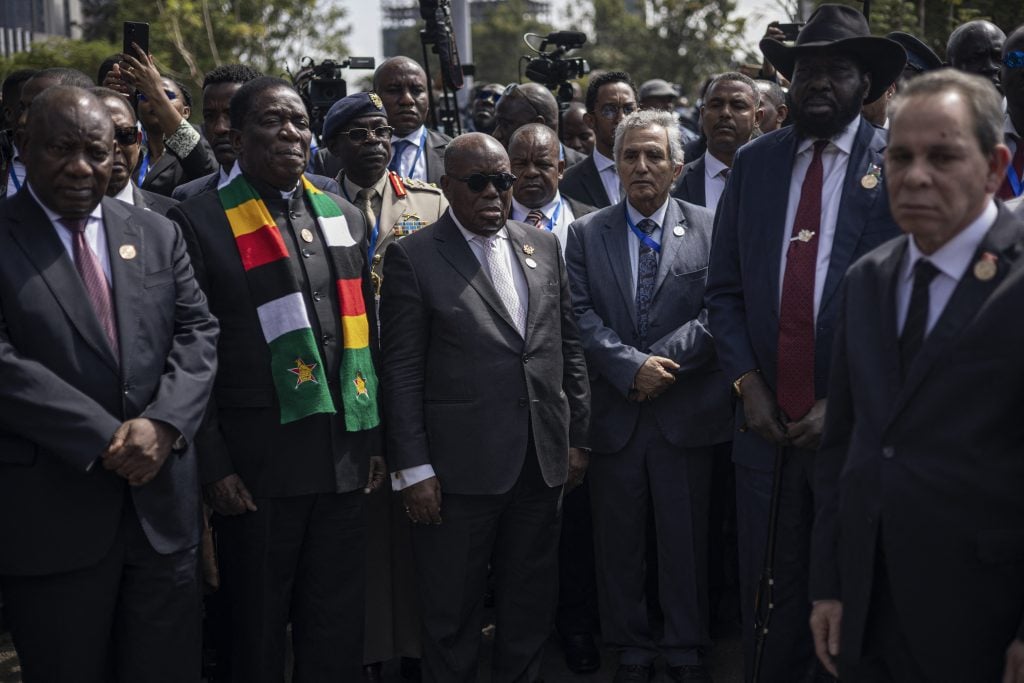
Institutional fragmentation
And yet, last February, after eight years and $5m spent as “the African Union Champion for Institutional Reform”, President Kagame gave up the position in high frustration, handing the impossible job to President William Ruto of Kenya. According to President Kagame, “The African Union today is more fit-for-purpose than it was. And we are getting better at defining our common interests and advocating for them. We still have a long way to go, for the African Union to be as strong as we want and need it to be.” That assessment displays either extreme diplomatic graciousness or some high form of optimism. The only real success the Rwandan leader could list was “the revitalisation” of the Peace Fund.
“Almost $400m has been mobilised. As a direct result, the United Nations Security Council recently decided to finance three-quarters of African Union peace operations for the first time,” he told his peers last February.
Thomas Tieku, a professor of politics at the University of Western Ontario, offers a more critical analysis. He argues that the AU has been successful in meeting the political class’s needs – but has struggled to connect with ordinary Africans. The AU has faltered in addressing the everyday concerns of its citizens, from good governance to intra-African trade and financial independence, in his assessment.
While endless works have been written – the Kagame Commission’s report on institutional reforms is said to count more than a thousand pages – to explain the overall sluggishness of the Union’s institutions, the institutional framework remains fragmented. The tussle over who should appoint the sherpas for the G20 is a minor illustration of that very difficulty.
One fact often overlooked is that the Pan-African Parliament, whose staff costs alone reached $7.4m in 2022, is statutorily prevented from passing any law whatsoever. Its composition is strictly on an egalitarian basis: five representatives for Burundi; five for Nigeria, and so on. It acts merely as a remarkably expensive advisory body. While the treaty protocol that established the parliament states that the ultimate goal is to give it full legislative powers, this can only be achieved once enough member states have ratified it and agreed to enact these powers. That has not yet happened.
The same reluctance by member states to give full legitimacy and authority to independent institutions of the AU is also evidenced by the lacklustre pace of ratifying the merger of the African Court on Human and Peoples’ Rights with the Court of Justice of the African Union into a single African Court of Justice and Human Rights. That process, approved in 2008 by the African heads of state, is nowhere near completion.
“The protocol has not yet been ratified by a sufficient number of member states to enter into force, suggesting a lack of commitment to the organ,” argues Paul Kagame. While member states thus show a disinclination to share legitimacy with the AU, many also demonstrate a blasé attitude regarding the funding of the institution. As a result almost two thirds of AU funding comes from “partners”, mostly Europe. Some may suspect that the these member states count on colonial guilt to silence criticism, prevent changes, and “let the good times roll!”
Entrenched commissioners
Contrary to the case in the European Union, the president of the African Union Commission cannot dismiss commissioners, nor can the parliament request their resignation, even if they are inefficient or absent from Addis Ababa.
This was lamented by a long-time head of one of the AU’s major institutions, who agreed to answer questions only on the promise of anonymity given the sensitive nature of the issues. Each commissioner – the chair and deputy chair included – is elected by the assembly of heads of state. They all share the same legitimacy, with the chairperson being a mere primus inter pares (first among equals). This wilful paralysis echoes down the line with staff and management issues. Staff costs reached $190m in 2022, compared to $187m for peace support operations.
“It can take 10 months to recruit a single department head,” says the former AU official. One solution put forward by the Kagame Commission – the creation of a general director position to interface with the staff of different commissioners – has produced meagre results. None of the staff members report hierarchically to the general director, and they can ignore his or her summons or directives.
This issue is compounded by the unclear partition of responsibilities between the chairperson of the commission and the (rotating) chair of the assembly of heads of state. Statutorily, the former is the chief executive officer and the “legal representative of the AU”. The assembly of heads of state and government remains, however, the AU’s supreme policy and decision-making organ.
Moreover, the commission is supposed to act as “the AU’s secretariat”, a stipulation that harks back to the old Organisation of African Unity, the predecessor to the AU, which had a secretary general but no commission or chairperson to rival the assembly of heads of state. “There seems to be a need to clarify the role of the chairperson of the African Union in relation to the chairperson of the commission,” insisted Paul Kagame in his final speech on the reform process.
Seen in these lights, the vision statements of a few candidates for the chairperson of the commission demonstrate a painfully naïve attitude. Former Kenyan Prime Minister Odinga, for instance, vows to “advocate for open skies, visa policy harmonisation, and infrastructure development,” in order to achieve “seamless connectivity and movement of goods and people,” as well as to press for the reform of the global financial architecture. This sounds good and sensible, except for the fact that the commission doesn’t have the final say on any of these issues, most of which either rest with national legislatures or falls under the remit of regional economic organisations. As Paul Kagame put it: “The principle of subsidiarity continues to be misinterpreted. Too often, there is incoherence in decisions made at the continental and regional levels.”
Improve efficiency and accountability
A candidate for the chair of the commission who seems to grasp these realities is Richard Randriamandrato of Madagascar. “Africa has 54 sovereign states. Each state has its own culture, history, and mindset. There is no other way but to give a head of state or government the chance to exercise their leadership style in order to advance the implementation of the African Agenda 2063,” he tells African Business.
“As for the chairman of the commission, it is a public servant position. Both chairpersons must coexist as best they can to ensure that leadership responsibilities do not interfere with management duties. Regarding efficiency and accountability, processes must be streamlined to reduce bureaucracy. We all know what needs to be done to improve efficiency and accountability. What must be done today should be done now, not tomorrow, with the resources available,” Randriamandrato adds.
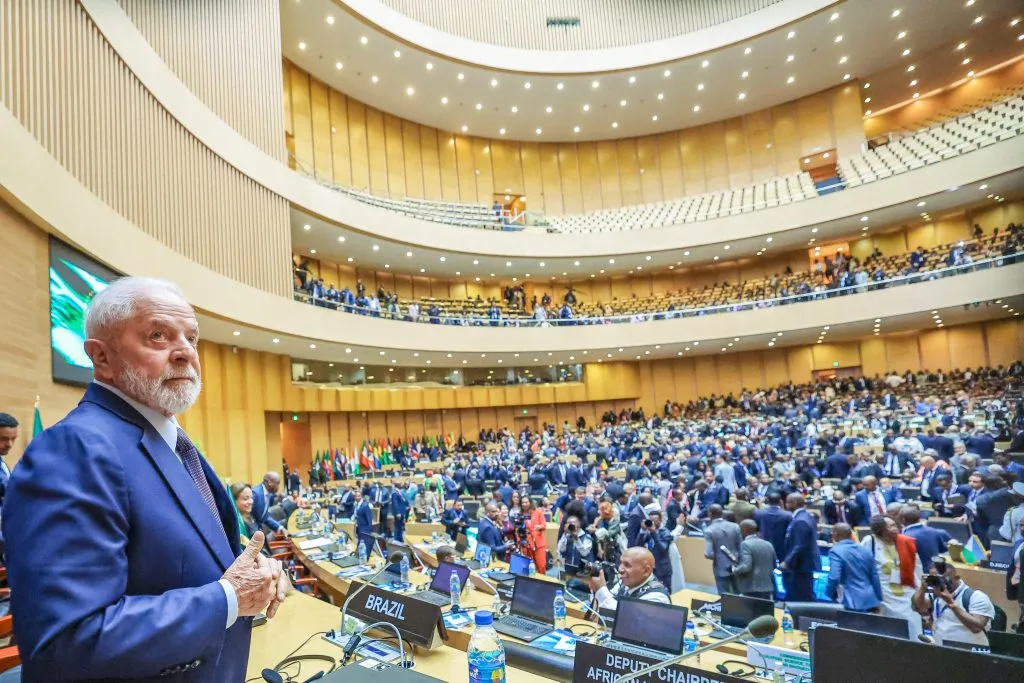
Some critical achievements
Given these institutional shortcomings and blockages, it would be easy to overlook some critical achievements. What is truly monumental is not what the AU has failed to do, but what it has managed to achieve despite these failings.
The AU remains a powerful, centralised forum where the voices and concerns of 1.5bn Africans can be heard, and where difficult issues can – at least in theory – be negotiated. The revitalised Peace Fund now holds close to $400m, and its management has been entrusted to experienced hands, namely Old Mutual Investment Group from South Africa and Sanlam Investments East Africa from Kenya.
Despite its complexities, the implementation of the African Continental Free Trade Area (AfCFTA) is gaining momentum and it has become integral to national policies and business strategies. Ambitious projects such as the Pan-African Payment and Settlement System (PAPSS), a cross-border financial market infrastructure enabling payment transactions across the continent, and the Programme for Infrastructure Development in Africa (PIDA), which supports transnational transport corridors, telecommunications networks, and energy supply routes, are under way.
Thanks in large part to the African Union, a unified African position was adopted during the Covid-19 pandemic, leading to the creation of the African Medicines Agency. Moreover, common African positions have been established on issues ranging from health to food systems.
Given these accomplishments, it is difficult to dismiss the Union as a failed experiment. The African Union is far from being over.
Want to continue reading? Subscribe today.
You've read all your free articles for this month! Subscribe now to enjoy full access to our content.
Digital Monthly
£8.00 / month
Receive full unlimited access to our articles, opinions, podcasts and more.
Digital Yearly
£70.00 / year
Our best value offer - save £26 and gain access to all of our digital content for an entire year!

 Sign in with Google
Sign in with Google 